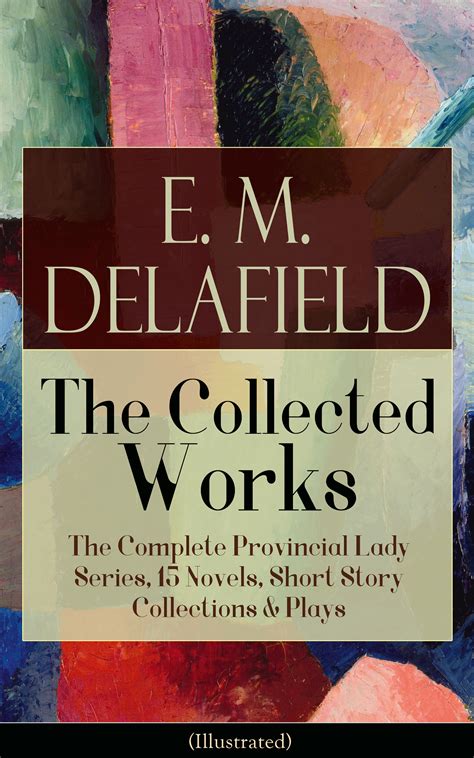A Quote by Nora Roberts
She surrounded herself with books at work and at home. Her living space was a testament to her first and abiding love with shelves jammed with books tables crowded with them. She saw them not only as knowledge entertainment comfort even sanity but as a kind of artful decoration.
Related Quotes
The difficulty will be to keep her from learning too fast and too much. She is always sitting with her little nose burrowing into books. She doesn't read them, Miss Minchin; she gobbles them up as if she were a little wolf instead of a little girl. She is always starving for new books to gobble, and she wants grown-up books--great, big, fat ones--French and German as well as English--history and biography and poets, and all sorts of things. Drag her away from her books when she reads too much.
She looked out then, through the crowd, and saw Simon with the Lightwoods, looking at her across the empty space that separated them. It was the same way that Jace had looked at her at the manor. It was the one thread that bound these two boys that she loved so much, she thought, their one commonality: They both believed in her even when she didn't believe in herself.
Once upon a time, there was a girl named Grace Brisbane. There was nothing particularly special about her, except that she was good with numbers, and very good at lying, and she made her home in between the pages of books. She loved all the wolves behind her house, but she love one of them most of all.
The apartment was entirely, was only, for her: a wall of books, both read and unread, all of them dear to her not only in themselves, their tender spines, but in the moments or periods they evoked… Her self, then, was represented in her books; her times in her records; and the rest of the room she thought of as a pure, blank slate.
I think the relationship [in Aquarius] with her nephew shows that she's not nostalgic. She just wants to preserve what is important to her - her records, her books, even some furniture. She doesn't want to leave that house because it is her home. That is where her kids were born. After moving so much in my life, I was touched by Clara's need to stay in that apartment. I love her life, and that may be why I connected to her so strongly. We are the most alike when we are fighting for our rights.
I say, 'Yeah, Taylor Swift.' I think she is a smart, beautiful girl. I think she's making all the right moves. She's got a good head on her shoulders. She's surrounded with wonderful people. Her songs are great. She keeps herself anchored. She knows who she is, and she's living and standing by that.
There was another reason [she] took her books whenever they went away. They were her home when she was somewhere strange. They were familiar voices, friends that never quarreled with her, clever, powerful friends -- daring and knowledgeable, tried and tested adventurers who had traveled far and wide. Her books cheered her up when she was sad and kept her from being bored.
Those were the people who made her something, and without them she was different. She'd held on to them and to that old self tenaciously, though. She clung to it, celebrated it, worshipped it even, instead of constructing a new grown-up life for herself. For years she'd been eating the cold crumbs left over from a great feast, living on them as though they could last her forever.
I found her lying on her stomach, her hind legs stretched out straight, and her front feet folded back under her chest. She had laid her head on his grave. I saw the trail where she had dragged herself through the leaves. The way she lay there, I thought she was alive. I called her name. She made no movement. With the last ounce of strength in her body, she had dragged herself to the grave of Old Dan.
She emptied herself of Fabio and of herself, of all the useless efforts she had made to get where she was and find nothing there. With detached curiosity she observed the rebirth of her weaknesses, her obsessions. This time she would let them decide, since she hadn't been able to do anything anyway. Against certain parts of yourself you remain powerless, she said to herself, as she regressed pleasurably to the time when she was a girl.
From an early age she had developed the art of being alone and generally preferred her own company to anyone else’s. She read books at enormous speed and judged them entirely on her ability to remove her from her material surroundings. In almost all the unhappiest days of her life she had been able to escape from her own inner world by living temporarily in someone else’s, and on the two or three occasions that she had been too upset to concentrate she had been desolate.
I think Eleanor Roosevelt always had a most incredible comfort writing letters. I mean, she was in the habit of writing letters. And that's where she allowed her fantasies to flourish. That's where she allowed her emotions to really evolve. And that's where she allowed herself to express herself really fully, and sometimes whimsically, very often romantically. And it really starts with her letters to her father, who is lifelong her primary love.
There once was a girl who found herself dead. She peered over the ledge of heaven and saw that back on earth her sister missed her too much, was way too sad, so she crossed some paths that would not have crossed, took some moments in her hand shook them up and spilled them like dice over the living world. It worked. The boy with the guitar collided with her sister. "There you go, Len," she whispered. "The rest is up to you.
The universal nature has no external space; but the wondrous part of her art is that though she has circumscribed herself, everything which is within her which appears to decay and to grow old and to be useless she changes into herself, and again makes other new things from these very same, so that she requires neither substance from without nor wants a place into which she may cast that which decays. She is content then with her own space, and her own matter, and her own art.


































